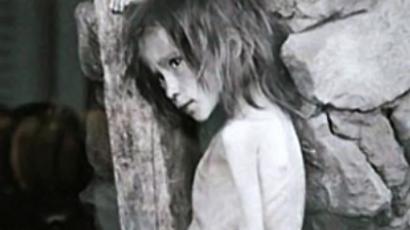Ukraine changes mind over Russia’s role in Stalin-era famine
Quite unexpectedly, top Ukrainian politicians have started making statements saying that Russia should not be blamed for the famine that claimed millions of lives in Ukraine in 1932-33.
The position differs drastically from the stand these same people held previously.
The chairman of the Ukrainian Security Service Valentin Nalivaichenko has said that the famine, known in Ukraine as Holodomor, was enforced by representatives of Ukrainian authorities and the punishing bodies that existed on Ukrainian territory at that time. “As for the third party – Russia or any other state, we are not talking about any claims against them from our side,” the official told Ukraine’s Channel 5 television.
Nalivaichenko also said that the criminal case against the famine organizers nears completion and can be forwarded to court before the end of this year. “Pre-trial investigation has established the organizers, who held top posts in the Ukrainian Bolshevik party. These are the secretary of the Communist Party’s Central Committee Stanislav Kosior, Pavel Postyshev, dispatched to the Kharkov Region in January 1933 by Stalin and Molotov, and Vlas Chubar, who was a people’s commissar [minister] in Ukraine at that time,” Nalivaichenko said, adding that those people are yet to be found guilty by court.
In April this year the Ukrainian Security Service published a list of prime suspects that included Stalin and the head of the Soviet State Security Directorate Genrikh Yagoda. Nalivaichenko holds the top post in the agency since March.
Yukrainian President Viktor Yushchenko, whose political program is largely based on nationalism and opposition to Russia said earlier this month that Ukraine possessed “3856 documents testifying to the fact that Holodomor has been planned in the Communist Party offices in Moscow.” However, the Ukrainian leader also said that modern Russia shold not be blamed for the tragedy as the Soviet Union “was a completely different country”.
Yushchenko made this statement at the opening of the exhibition devoted to the tragedy. This year, the organizers removed some controversial pictures and documents from the exhibition and reduced the official number of deaths from up to 11 million to four and a half million.
Sergey Mikheev from the Center for Political Technologies believes there is no trace of ethnic genocide in Holodomor.“The policy of collectivization was indeed directed by Joseph Stalin, but locally it was implemented by ethnic Ukrainians. So can we speak about ethnic genocide? It stands to reason we can't,” he said.
The 1932-33 famine was recognized a crime against humanity by the European Parliament in 2008. The resolution blamed the disaster on actions of Joseph Stalin’s regime.
Every fourth Saturday of November is marked in Ukraine as the day of memory of victims of Holodomor and political repressions. This year the day will be marked on November 28.













